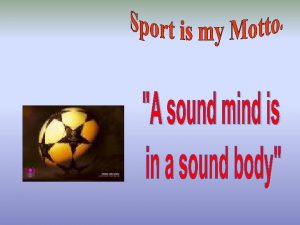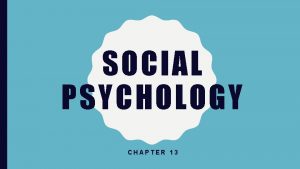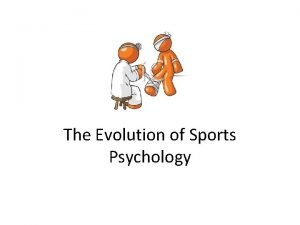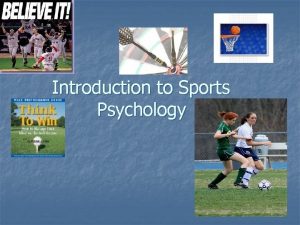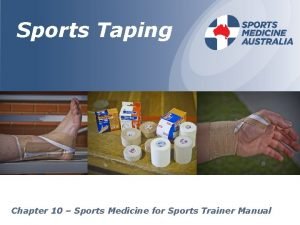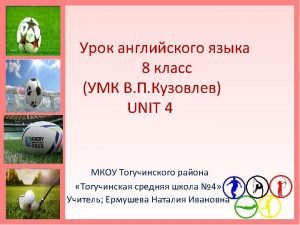Chapter 10 Sports Psychology Sports Psychology The study










- Slides: 10

Chapter 10: Sports Psychology

Sports Psychology § The study of sport and exercise and the mental factors influencing performance § A fast-growing field with many career opportunities § Careers may be pursued in educational, clinical, or research settings Copyright © 2004 by Thomson Delmar Learning. ALL RIGHTS RESERVED. 2

Sports Psychology (cont. ) § Sports psychologists can help athletes develop – Goals – Self-confidence – Motivation – Positive self-image – Strategies to cope with stress and disappointment Copyright © 2004 by Thomson Delmar Learning. ALL RIGHTS RESERVED. 3

Goal-Setting § By setting goals, an individual can – Achieve more – Improve performance – Improve the quality of training Copyright © 2004 by Thomson Delmar Learning. ALL RIGHTS RESERVED. 4

Goal-Setting (cont. ) § By setting goals, an individual can – Increase motivation to achieve at a higher level – Increase pride and satisfaction in performance – Improve self-confidence Copyright © 2004 by Thomson Delmar Learning. ALL RIGHTS RESERVED. 5

Goal-Setting Guidelines § § Express goals positively Set priorities Write goals down Keep operational goals small Copyright © 2004 by Thomson Delmar Learning. ALL RIGHTS RESERVED. 6

Goal-Setting Guidelines (cont. ) § Set performance goals, not outcome goals § Set specific goals § Set goals at the highest level § Set both short- and long-term goals Copyright © 2004 by Thomson Delmar Learning. ALL RIGHTS RESERVED. 7

Imagery and Simulation § Imagery is the process of reviewing and training in the mind only, using visualization. § Simulation is the process of making physical training circumstances as close as possible to the real competition. Copyright © 2004 by Thomson Delmar Learning. ALL RIGHTS RESERVED. 8

Stress § Stress may affect the performance of athletes and can result from – Transitional stress – Injuries – Burnout Copyright © 2004 by Thomson Delmar Learning. ALL RIGHTS RESERVED. 9

Self-Confidence § One of the most important attributes an athlete can have § Confidence should be based on observed reality § Goal-setting may be the most effective way to build selfconfidence Copyright © 2004 by Thomson Delmar Learning. ALL RIGHTS RESERVED. 10
